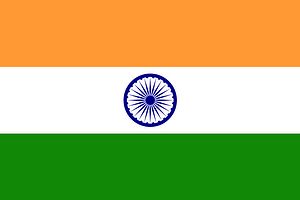May 16, 2014 will be the day 814 million people in India participate in the biggest democratic exercise in the world to choose a leader. The elections will determine who will lead the country for the next five years. The Election Commission of India announced the dates for the 16th parliamentary elections on Thursday. Spread out over nine phases, the voting begins on April 7 and continues until May 12.
The next two months will be an intense political slugfest that will test the popularity of Narendra Modi, the prime ministerial candidate of the opposition Bharatiya Janata Party (BJP), and Rahul Gandhi, the main face of the ruling Congress party.
Given the present political mood in the country, Modi seems to be leading the race, but it is not certain whether his party will manage to acquire an absolute majority. No party or coalition has managed an absolute majority in the country since 1989. Opinion polls predict a clear lead for the BJP but none of them have given the party a simple majority of 272 seats out of 545.
On the other hand, the Congress party seems to be losing steam and passing through a bad phase. It would be a miracle if the party’s coalition managed to retain power in the face of widespread unpopularity due to prevailing corruption, an economic slowdown and rising inflation. The grand old party of India is looking at poor prospects in the coming elections if one goes by the current mood. The elections will also be a litmus test for the party’s vice president and the scion of the Nehru-Gandhi dynasty, Rahul Gandhi, who has been trying usher in a generational change in the old party.
The Third Front, a conglomeration of regional parties, is also in the running and can play a very crucial role in a post-election scenario. These are the parties which are not aligned with either the Congress or the BJP. The idea of such a grouping is to get as many seats as possible and form the government at the center with the support of either of the national parties. The Third Front experiment in the past has been short lived. In 1989, the front formed the government with BJP support but within two years it unraveled and collapsed under its own weight. A similar fate hit the political bloc in 1996 and 1997 when internal leadership battles led to the downfall of the government. Therefore, history has not been favorable to the Third Front, which is comprised of leaders with overwhelming prime ministerial ambitions.
The newly formed Aam Aadmi Party (AAP) or Common Man’s Party might be a factor in the parliamentary elections. Some political analysts say that the AAP has the potential to damage Modi’s prospects. The reason cited is the popularity of the anti-corruption front among urban voters who are also believed to be favorably disposed towards the BJP. However, serious doubts persist about whether the Arvind Kejriwal-led political group can seriously damage the prospects of the mainstream political parties considering the fact that the AAP government in Delhi has not been that promising.
Despite the lead that Modi seems to have established, the 2014 elections are still wide open. There is no finality yet. If the Modi-led BJP fails to gain 200 seats and falls short of a majority by 50 or 60 seats, the chances of Modi getting outside support from regional parties are not that bright considering his controversial past and image as a radical Hindu leader. One also cannot rule out the possibility of Congress springing a surprise, as happened in 2004 when it managed to come out on top despite being an underdog. But such possibilities appear remote given the strong anti-incumbency mood sweeping the country.
No doubt it’s going to be an interesting election season in the largest and most populous democracy of South Asia.

































